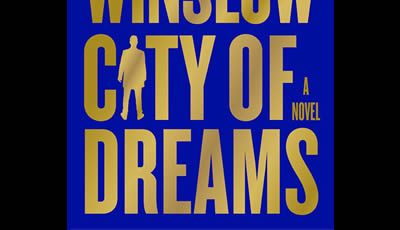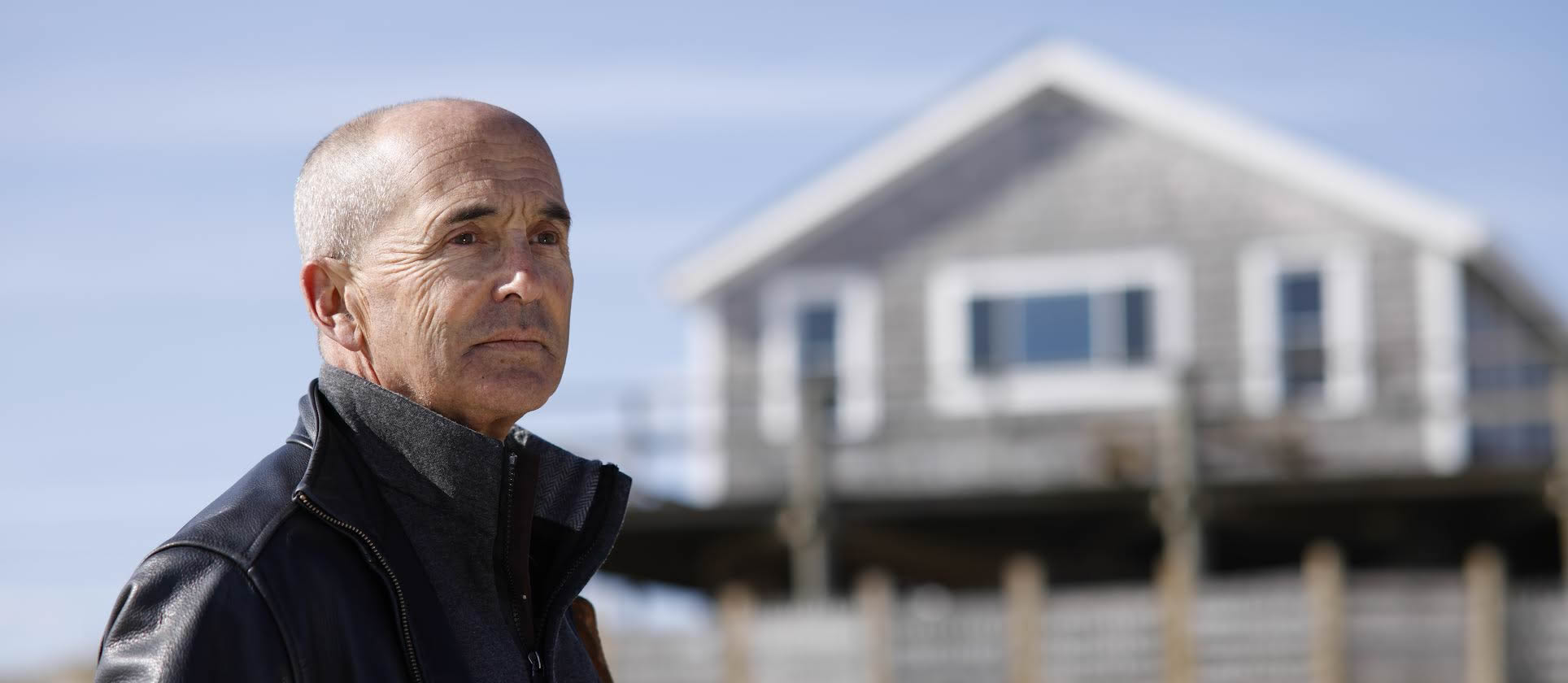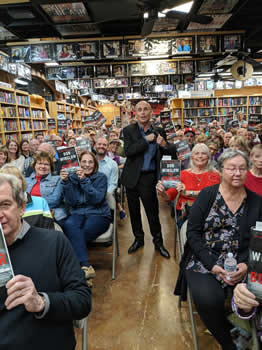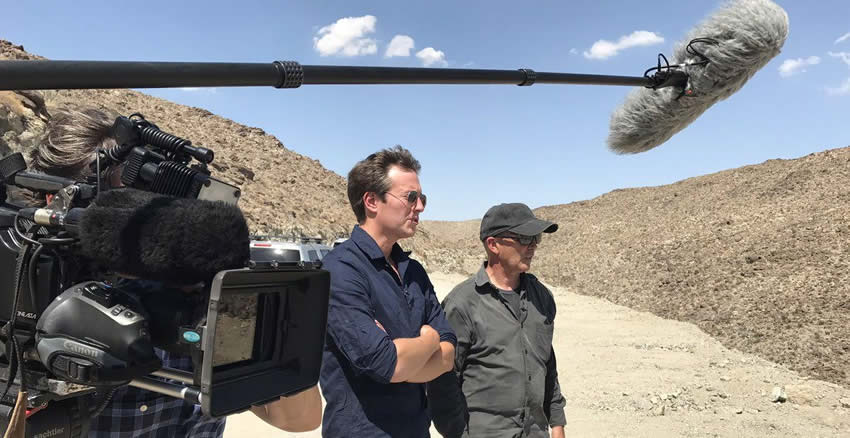

Features Up Close: Don Winslow
You Pay for Your Sins, Even in Your Dreams
 By K.L. Romo
By K.L. Romo
Danny Ryan is on the run.
In his newest thriller CITY OF DREAMS (the 2nd book of the trilogy, following City on Fire), bestselling author Don Winslow continues his vivid mobster noir with compelling characters entrenched in the universal conflict between good and evil, and the fight to keep family safe.
Danny was a foot soldier for his father-in-law and Irish mob boss, John Murphy, but that was before. Before the war between the Italians and the Irish. Before the death of his wife. Before he fled Providence, Rhode Island, with his alcoholic father and his two-year-old son. Danny had survived the devastating war with the Moretti family. He’d left the Italians alive, but now regrets that decision. They’re after him.
Although he struggles to create a legitimate life for himself and his son, Danny finds himself in the position of reluctant crime boss. He can’t seem to rid himself of the criminal underworld. And now the Feds want to use him as a lure in a sting operation.
Danny must figure out what it will take to leave crime behind and become a lawful businessman. If he can live that long.
Winslow uses intimate characterizations to portray not only a clash between mob factions, but Danny’s internal struggle between who he is—and has always been—and who he yearns to be. He wants a better life for his son, and he’s the only one who can make that happen. But can he distance himself from those using him as a pawn in the chess game that is his life?
Here, The Big Thrill chats with Winslow about his inspiration for the novel, his detailed character development, using his unique life experiences to inform his writing, and his activism for democracy.
The inspiration for the story and characters in CITY OF DREAMS (and City on Fire) is both Homer’s Iliad and your experience with true crime events growing up in Providence, Rhode Island. Can you tell us a little more about that?
I grew up in New England during an era in which crime families were fighting for control, so that became sort of a leitmotif behind my youth. Much later, when I started reading the classics, the parallels between the Trojan War and the crime wars were so striking. While the plot of City on Fire comes from the Iliad, CITY OF DREAMS follows those characters after the war and mostly tracks the Aeneid and the Greek tragedies, although I think a reader could enjoy the book without any reference to the classics at all, as a stand-alone crime novel. I guess what I’m trying to say is that all the themes we deal with in crime fiction were done centuries ago by the Greeks and Romans.
Is the main character, Danny Ryan, a composite of people you knew in Providence?
Danny is completely fictional. Having said that, I knew a number of “Dannys” when I was growing up, so I drew on those general experiences. He was an easy character to write, because I already knew his mindset, how he viewed things, what he wanted. This is going to sound strange, but I never start writing a novel until the characters start talking to me. Danny has been speaking to me for many years.
How have your past professions as a safari guide in Africa, an employee at a panda reserve in China, a director of Shakespeare plays in England, and a private investigator informed your writing?
I used to say that they didn’t, but upon more reflection, I would say that they gave me an eye for detail. Guiding photographic safaris is all about seeing the little things and then determining what the next move is going to be. (While the clients are looking at elephants, for instance, you’re thinking about where the lions are going to be.)
The private investigator stuff, of course, put me in touch with cops, lawyers, and criminals, and helped me gain insight into their mindsets. Shakespeare? A huge influence, and having to stage it makes you deal with the muscularity of words and the uses of silence. I often read my dialogue out loud to myself—I won’t necessarily hear the right notes, but I will hear the wrong ones.
It took almost 30 years (off and on) to write the first book of the trilogy. Will you talk about how writing a book about subject matter and location so “close to home” is different from writing a totally fictitious book?
In some ways, it’s easier because you’re so familiar with the turf, so it requires less research. But it’s harder because it can be so personally evocative. I left Rhode Island (the book’s setting) when I was 17. While I visited in the interim, I really went back for lengths of time to take care of my aging mother.
So those were difficult—ultimately sad—times, but I fell in love with the place again. Maybe I saw it through more mature eyes (although no one has ever accused me of maturity), or maybe it felt like a homecoming I never thought would happen. But in writing about home, I was dealing with personal memories and the story of the book, and that was challenging.
Will you tell us more about how you’ve given up writing to become an activist for American democracy?
I just think that the times demand it. We’ve been—and still are—in an existential crisis for our democracy. I’ve been on social media, and my friend, agent and partner Shane Salerno and I having been making videos for years now. There’s only so much time and so much energy, and I think mine needs to go to this fight.
Have you considered writing a novel about the current climate in our country as part of your messaging against the far right, showcasing the lunacy of the previous administration “in living color”? Might the people who follow blindly realize the absurdity if they had a fictional parallel to make an impression?
Here’s the problem: by the time I write such a novel (and to do it well would take years), and then the whole editing, printing and publishing process happens, I will have written an elegy of American democracy, which I certainly don’t want to do. I agree with you that fiction can change attitudes (I hope that was the case with the novels I wrote about the war on drugs, for instance), but the current issues are urgent, they need responses daily, and there isn’t time to write a longer work.
Do you have any plans to enter the political arena by running for office?
Easy one—No.
What advice can you give other writers?
Never give up. I was rejected more than a fifth credit card, and it finally happened to me. And do the do-able; don’t set unrealistic goals. Make a commitment you can keep—five pages a day, three, whatever, and then keep it. If you write only a page a day, in about a year, you have a book.
Writers are given advice to not alienate readers by posting about politics. What are your thoughts?
I don’t think that a writer has any responsibility but to write well, so I’m not saying that it’s a moral duty to be politically involved. Personally, I feel I need to be, and that has alienated some readers. But almost everything you write has the potential to offend someone, and you can’t worry about it too much. I’ve taken on the right-wing, the MAGA types, the insurrectionists, etc., and if they’re alienated—good.
Tell us something about yourself your fans might not already know.
That I’m often mistaken for a (better-looking) Brad Pitt.
No?
- The Big Thrill Recommends: ONE BIG HAPPY FAMILY by Jamie Day - September 16, 2024
- The Big Thrill Recommends: ONLY ONE SURVIVES (Video) by Hannah Mary McKinnon - July 30, 2024
- The Big Thrill Recommends: WHAT YOU LEAVE BEHIND by Wanda M. Morris - June 27, 2024




